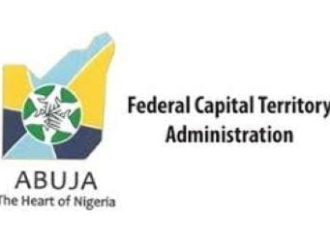Farmers in Osun, Ekiti, and Ondo Raise Alarm Over Labour Shortage and Soaring Input Costs As the 2025 rainy season farming preparations intensify, farmers across Osun, Ekiti, and Ondo states are expressing deep concern over two major hurdles — the scarcity of unskilled labour and the surging prices of farm inputs. These twin challenges are
Farmers in Osun, Ekiti, and Ondo Raise Alarm Over Labour Shortage and Soaring Input Costs

As the 2025 rainy season farming preparations intensify, farmers across Osun, Ekiti, and Ondo states are expressing deep concern over two major hurdles — the scarcity of unskilled labour and the surging prices of farm inputs. These twin challenges are threatening to derail agricultural productivity and worsen food insecurity across the South-West region.
In interviews conducted by the News Agency of Nigeria (NAN), several farmers lamented that the current situation is putting unprecedented financial pressure on them, making it difficult to manage large farms or meet seasonal planting schedules.
Nigeria Upgrades 38 Technical Colleges To Equip Youth With Globally Competitive Skills
Labour Shortage Hits Farmers Hard
A prevailing complaint among farmers in Ondo State is the dearth of unskilled workers — a problem many describe as a looming threat to the new farming season. Mr. Dayo Akindele, a farmer in the state, emphasized that most labourers who traditionally helped during peak farming periods have abandoned the sector for alternative sources of income, especially commercial motorcycle operations.
“We are facing serious challenges as a new farming season approaches,” Akindele explained. “I have a large farm which I cannot manage alone. Unfortunately, most labourers we used to engage are no longer in sight.”
Echoing this concern, Mr. Stephen Akintelure said he is uncertain about participating in the new season due to the manpower crisis he experienced during the previous planting season. Similarly, Mr. Adewale Malumi warned that if the issue persists, it could result in low yields and possible hunger, urging the government to intervene by making tractors and farm machinery available for rent across all 18 local government areas in the state.
Female farmer, Mrs. Esther Oluwafemi, noted that those willing to work on farms are now rare and expensive. “The able men are not available. We’re paying more to hire workers for farm labour,” she said.
Cost of Inputs and Insecurity Compound the Crisis
Farmers are also grappling with a surge in the prices of essential inputs like fertilisers, seeds, and chemicals. The President of the Ondo State Farmers Congress, Mr. Abayomi Monilari, attributed the challenges to non-availability of farm tools, adulterated agrochemicals, and persistent insecurity in rural areas.
He called for intervention through soft loans, especially for commercial-scale farmers, to ensure that agricultural production is not compromised. “The government must act fast to support us if we are to feed the nation,” Monilari insisted.
Agronomist Dr. Clement Emiju added another layer to the crisis, citing frequent disruptions caused by bandits, cattle herders, and other criminal elements as reasons farmers are abandoning their lands. He advocated for enhanced collaboration between local authorities and farmers, proposing community-led security strategies to protect farmlands.
“Nigeria has the capacity to be self-sufficient in food production,” Emiju said. “But without security and financial access to quality inputs, farmers remain handicapped.”
Policy Suggestions and Cooperative Solutions
Dr. Emiju encouraged farmers to tap into government subsidies and grant opportunities while also considering micro-financing and cooperative models to pool resources. These methods, he noted, can provide short-term relief and help scale up operations despite the broader economic pressures.
Chief Abiodun Adejo, Chairman of the Ondo State Agricultural Commodities Association (OSACA), identified poor rural infrastructure, particularly bad road networks, as another bottleneck for agricultural development. According to him, without access to functional roads, transporting goods and machinery becomes costly and inefficient.
Osun and Ekiti: Mixed Realities
In contrast to Ondo’s dire picture, Osun State farmers reported a more optimistic outlook, albeit with challenges. Mr. Ganiyu Musefiu, Vice Chairman of the All Farmers Association of Nigeria (AFAN) in Osun, noted that planting activities for crops like maize, cassava, and vegetables were already underway.
He praised the state government for supporting female farmers with seedlings and subsidized tractor services, though he acknowledged the persistent issue of poor access to credit facilities as a limiting factor.
Meanwhile, Professor Abimbola Oluwaranti, a crop scientist at Obafemi Awolowo University (OAU), emphasized that farmers need more than occasional aid — they require sustainable, structured government intervention. “The government should be more proactive and provide an enabling environment for quality production,” she urged.
In Ekiti State, agriculturist Mr. James Abioye warned about another environmental risk: excessive rainfall. He explained that flooded farmlands often lead to root rot, erosion of topsoil, and depletion of essential nutrients — all of which further reduce productivity.
With the onset of the rainy season, stakeholders agree that immediate action is needed to prevent further food insecurity. The labour shortage, high cost of inputs, and insecurity form a deadly triad threatening the livelihood of farmers and the food basket of the region.
Governments at all levels are being urged to rise to the occasion. The deployment of farm machinery, establishment of rural security networks, provision of subsidized inputs, and easier access to agricultural credit are critical steps that could reinvigorate the sector.
If these measures are delayed or neglected, the 2025 planting season may result in poor harvests and rising food prices, further straining an already fragile economy and deepening the hunger crisis across the country.
















Leave a Comment
Your email address will not be published. Required fields are marked with *